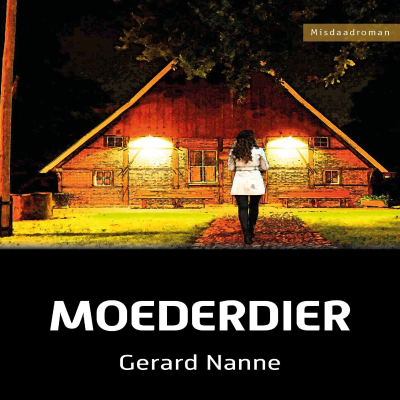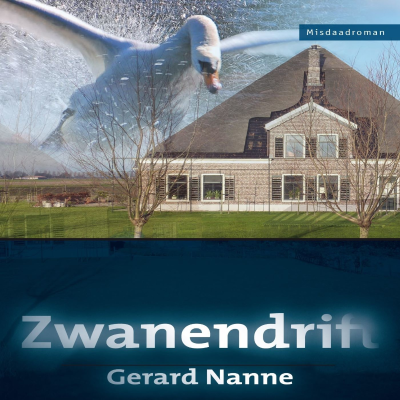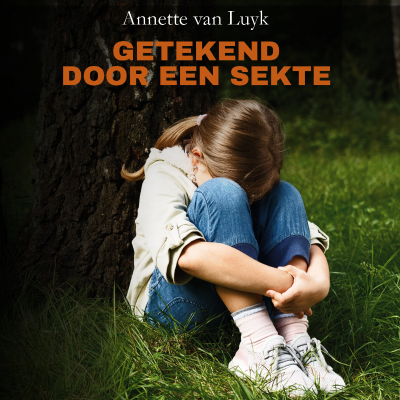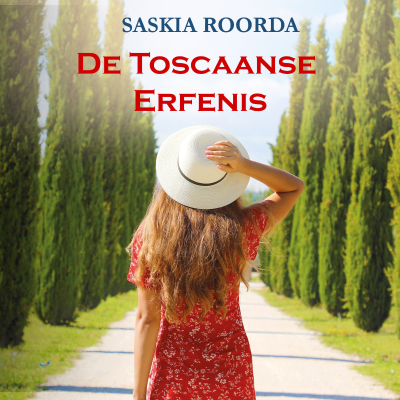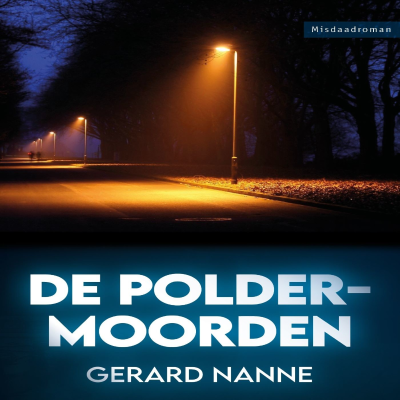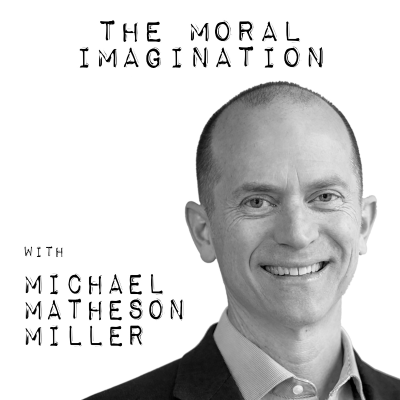
868403
Engels
Nieuws & Politiek
Tijdelijke aanbieding
1 maand voor € 1
Daarna € 9,99 / maandElk moment opzegbaar.
- 20 uur luisterboeken / maand
- Podcasts die je alleen op Podimo hoort
- Gratis podcasts
Over 868403
868403
Alle afleveringen
61 afleveringenEpisode 60: Augustine Wetta, O.S.B. St. Benedict's 12-Step Guide to Genuine Self-Esteem
In this episode of the Moral Imagination Podcast I speak with Fr. J. Augustine Wetta [https://www.augustinewetta.com/] about his book Humility Rules: Saint Benedict's Twelve-Step Guide to Genuine Self-Esteem. The world teaches us to assert ourselves, to follow our passions, to speak up, talk back, “get yours,” don’t let anyone stand in your way. But it doesn’t really work. As Tyler Durden proclaims in Fight Club: “We've all been raised on television to believe that one day we'd all be millionaires, and movie gods, and rock stars. But we won't. And we're slowly learning that fact.” In contrast to the world’s and Fight Club’s response (which we won’t talk about), Fr. Augustine looks at the Rule of St. Benedict and his ladder of humility as a guide for real happiness and true self-esteem, which comes not from self-assertion, but from self-denial, selflessness, serving others, and not being a slave to one’s own will and desires. We discuss Fr. Augustine journey from a lifeguard, surfer, and rugby player to a Benedictine monk, and some of his stories teaching high school students, and throwing himself into a rosebush. In his Rule for monks, St. Benedict explains that any progress toward holiness, happiness, and relationship with God and others must be grounded in humility. He describes humility as a ladder – with one side as the soul and the other as the body. …if we want to reach the highest summit of humility, if we desire to attain speedily that exaltation in heaven to which we climb by the humility of this present life, then by our ascending actions we must set up that ladder on which Jacob in a dream saw angels descending and ascending (Gen 28:12). Without doubt, this descent and ascent can signify only that we descend by exaltation and ascend by humility. Now the ladder erected is our life on earth, and if we humble our hearts the Lord will raise it to heaven. We may call our body and soul the sides of this ladder, into which our divine vocation has fitted the various steps of humility and discipline as we ascend. (St. John’s Abbey) Fr. Augustine goes through each of the steps on the ladder of humility * Fear of God * Self-Denial * Obedience * Perseverance * Repentance * Serenity * Self-Abasement * Prudence * Silence * Dignity * Discration * Reverence The book is excellent. It is morally and spiritually serious and entertaining. I laughed out loud several times. Fr. Augustine offers apparently outlandish advice to to people struggling with anxiety, worry, and broken relationships * Don’t speak up * Be someone’s doormat * Don’t follow your dreams * Put your worst foot forward And gives “homework” to practice each of the steps including: * Make no excuses next time you are reprimanded * Clean a toilet * Say thank you next time someone tells you something you already know * The next time you see something not done your way - leave it be if it works In addition to Humility Rules we discuss a number of topics including: · His book on decision making called , Pray, Think, Act: Make Better Decisions with the Desert Father · Joy cannot be grasped, but is the fruit of love and self-denial. · St. John Cassian and his writings on the eight vices – including the vice of self-esteem, and why focusing on ourselves prevents us from building good relationships and finding happiness. · Challenges of modern life, particularly the impact of digital distractions on mental health and spiritual well-being · The difference between contemporary meditation practices with traditional Catholic contemplative prayer. · The importance of cultivating an attitude of reverence and gratitude · The role of obedience in spiritual growth – and why it’s probably not a good idea to throw oneself into a rosebush. · How chastity requires us to see others as persons and subjects, not objects for use · St. Benedict’s rule on Silence, how silence increases mental clarity and attention to others, and the magnificent quote from Dom Paul Delatte OSB Commentary on the Rule of St. Benedict “The fundamental purpose of silence is to free the soul, to give it strength and leisure to adhere to God. It delivers us from the low tendencies of our nature and of fixing us in the good.“ Biography Augustine Wetta is a monk of Saint Louis Abbey [https://www.stlouisabbey.org/] in Saint Louis Missouri. He has two degrees in Theology from Oxford University, a BA in Ancient Mediterranean Civilizations from Rice University, and an MA in English from Middlebury College. For twenty years, he has taught English, Classics, and Theology at the Priory School [https://www.priory.org/], in Saint Louis, Missouri, where he also coached rugby and served as Director of Chaplaincy. In 2019, he was named a Portsmouth Institute Senior Fellow. He writes for Our Sunday Visitor, and hosts a blog entitled "Disagreement" [https://open.spotify.com/show/1oU3368RaMdQIfNuDkZV3z] with Islamic social activist Umar Lee, and frequently appears on EWTN [https://www.youtube.com/watch?v=OXzLoEtF9MM] and Saint Joseph Radio [https://saintjosephradio.net/store/best-fr-augustine-wetta-osb].In 2014, he was awarded the Judson Jerome Poetry Award and the Bill Baker Award for Fiction at the Antioch Writers Workshop (the first author in the history of the conference to win both). In 2015, he was awarded the Taliaferro Award for Memoir Writers at the San Francisco Writers Conference, where he was also a finalist for the Emerging Writer Award.He is the author of several books: * Pray, Think, Act [https://www.amazon.com/Pray-Think-Act-Decisions-Fathers/dp/1621645819] a book on decision-making based on the sayings of the Desert Fathers [https://www.amazon.com/Pray-Think-Act-Decisions-Fathers/dp/1621645819] * The Eighth Arrow, [https://smile.amazon.com/Eighth-Arrow-Odysseus-Underworld/dp/1621642208/ref=sr_1_2?qid=1571081360&refinements=p_27%3A+J.+Augustine%5CcWetta+O.S.B.&s=books&sr=1-2&text=Wetta+O.S.B.%2C+J.+Augustine] a fantasy prison-break set in Dante’s Inferno * Saving Grace [https://smile.amazon.com/Saving-Grace-S-B-Augustine-Wetta/dp/0984765670/ref=sr_1_3?qid=1571081360&refinements=p_27%3A+J.+Augustine%5CcWetta+O.S.B.&s=books&sr=1-3&text=Wetta+O.S.B.%2C+J.+Augustine], an illustrated children’s book about a three-legged turtle. * Humility Rules: A 12 Step Guide to Genuine Self-Esteem [https://smile.amazon.com/Humility-Rules-Benedicts-Twelve-Step-Self-Esteem/dp/162164149X/ref=sr_1_1?qid=1571081360&refinements=p_27%3A+J.+Augustine%5CcWetta+O.S.B.&s=books&sr=1-1&text=Wetta+O.S.B.%2C+J.+Augustine] which has sold over 100,000 copies and has been translated into five languagesThe son of an artist (Jean Carruthers Wetta [http://jeancarrutherswetta.com/]) and a historian (Frank Wetta) [https://www.frankwetta.com/], Father Augustine was born in Baton Rouge, Louisiana in 1971, but grew up in Galveston, Texas. There he learned to surf and developed an enormous ego as a lifeguard on the Galveston Sheriff Department Beach Patrol [https://galvestonislandbeachpatrol.com/]. During this time, he also worked as a professional juggler (“The Flying Fettuccinne Brothers” [https://www.youtube.com/watch?v=YxzvOE9MMLI]) and as an archaeologist (at the Agora in Athens). He remains an avid surfer. In fact, if you Google “surfing monk [https://www.youtube.com/watch?v=d145iLXvqmo]” his is the first name that comes up—along with a news report about how he was nearly eaten by a shark. Themes/Chapters of the Interview * 00:00 Introduction to Father Augustin Weta * 03:07 Exploring Humility and Self-Esteem * 05:55 St. Benedict’s Ladder of Humility * 09:13 Fr. Wetta’s Journey to Monastic Life * 12:03 The Role of Self-Denial * 14:52 The Importance of Silence * 18:11 Art, Beauty, and Truth * 21:04 Fear of God and Genuine Self-Esteem * 30:06 The Struggle with Digital Distractions * 34:12 The Importance of Silence in Modern Life * 37:29 Meditation vs. Contemplation: A Spiritual Perspective * 41:39 Understanding Lust and Chastity * 49:00 The Role of Reverence in Spiritual Life Resources J Augustine Wetta: Humility Rules: St. Benedict’s 12-Step Guide to Genuine Self-Esteem [https://www.amazon.com/Humility-Rules-Benedicts-Twelve-Step-Self-Esteem/dp/162164149X/ref=sr_1_1?crid=2YSVXWYJ32WCH&dib=eyJ2IjoiMSJ9.KoEM0ysVojbVb14OJne_Gg.7T7shjr71kSVWzpK29UKbqdj4LCzrTa9rPH4RF3BWhs&dib_tag=se&keywords=humility+rules+saint+benedict%27s+12-step+guide+to+genuine+self-esteem&qid=1741025650&sprefix=humility+rule%2Caps%2C170&sr=8-1] J Augustine Wetta: Pray, Think, Act: Make Better Decisions with the Desert Fathers [https://www.amazon.com/Pray-Think-Act-Decisions-Fathers/dp/1621645819/?_encoding=UTF8&pd_rd_w=qepdS&content-id=amzn1.sym.bc3ba8d1-5076-4ab7-9ba8-a5c6211e002d&pf_rd_p=bc3ba8d1-5076-4ab7-9ba8-a5c6211e002d&pf_rd_r=145-4445144-0073812&pd_rd_wg=APIKe&pd_rd_r=47aaacfd-005d-4922-8dc6-81b5f45c7ce6&ref_=aufs_ap_sc_dsk] Philokalia Volume 1 [https://www.amazon.com/Philokalia-Complete-Compiled-Nikodimos-Markarios/dp/0571130135/ref=sr_1_2?crid=2VCGHT6O9K4JN&dib=eyJ2IjoiMSJ9.EwqQ5ZZDq5eQ_Opdperkd2tH0gRfvPym7dnVTfFRAfIgtNiEEmr57Bs4st71zybaKiB-VjSMg-AZXclXreOI3abgU1JQ84Drd5zVfFEwJ_KfvnRNoYCkZbABSQVTvbOCRFUrNLBZ5gO-INNX4kQaQQCSZyQQLBSSfb3OF0RkUpfClF-5E9Lyjf6-bDlIOC1kQWMWa1DisojMA6aLcjmN1GYHUxH3hW3qelZ-t0cH4QCMb-TZAW8JVEIdsEVC9AkoyQM-l3PJYaKGHV9qAOzt4TgqXBZ-9FVnrXhwbsH7HbjEFaQ2nTMOp3tDFtuT8r8XZRSFTfaI7dP2xBpdXIuPxp9WMqoL6m5QuRRAXxqp-g8.SPB4sswfVZje3wQDjOfAJnXfLHDvlLDEK5_0SSwkG8Q&dib_tag=se&keywords=philokalia&qid=1741026141&s=books&sprefix=philok%2Cstripbooks%2C157&sr=1-2] https://www.amazon.com/Philokalia-Complete-Compiled-Nikodimos-Markarios/dp/0571130135/ref=sr_1_2?crid=2VCGHT6O9K4JN&dib=eyJ2IjoiMSJ9.EwqQ5ZZDq5eQ_Opdperkd2tH0gRfvPym7dnVTfFRAfIgtNiEEmr57Bs4st71zybaKiB-VjSMg-AZXclXreOI3abgU1JQ84Drd5zVfFEwJ_KfvnRNoYCkZbABSQVTvbOCRFUrNLBZ5gO-INNX4kQaQQCSZyQQLBSSfb3OF0RkUpfClF-5E9Lyjf6-bDlIOC1kQWMWa1DisojMA6aLcjmN1GYHUxH3hW3qelZ-t0cH4QCMb-TZAW8JVEIdsEVC9AkoyQM-l3PJYaKGHV9qAOzt4TgqXBZ-9FVnrXhwbsH7HbjEFaQ2nTMOp3tDFtuT8r8XZRSFTfaI7dP2xBpdXIuPxp9WMqoL6m5QuRRAXxqp-g8.SPB4sswfVZje3wQDjOfAJnXfLHDvlLDEK5_0SSwkG8Q&dib_tag=se&keywords=philokalia&qid=1741026141&s=books&sprefix=philok%2Cstripbooks%2C157&sr=1-2- This is an amazing collection and it includes St. John Cassian on the Eight Vices Other Books related to the rule of St. Benedict Dom Paul Delatte, OSB —his Commentary on the Rule of St. Benedict is long and detailed but incredibly impressive and deep. Honestly it is probably not worth it unless you Here is the quote on silence from Dom Delatte that I refer to in the episode and I use a lot - especially in thinking about cultivating silence, but also in our age of over-information. I also recommend a visit to a Benedictine Abbey if you can. I have not visited St. Louis Abbey, but I have visited Clear Creek Abbey [https://clearcreekmonks.org/]in Oklahoma several times. You can learn more about them here [https://clearcreekmonks.org/abbey/]and get CDs of their chanting [https://clearcreekmonks.org/product-category/gregorian-chant-cds/monks-of-clear-creek/] if you are interested. Photo Credit: Courtesy Augustine Wetta OSB Get full access to The Moral Imagination - Michael Matheson Miller at www.themoralimagination.com/subscribe [https://www.themoralimagination.com/subscribe?utm_medium=podcast&utm_campaign=CTA_4]
Episode 59: Catherine Pakaluk, Ph.D - A Life Marathon: On having a large family in a consumerist culture amidst declining marriage and birth rates
In this episode of the Moral Imagination Podcast I speak with Catherine Pakaluk about her book Hannah’s Children: The Women Quietly Defying the Birth Dearth Over the last 200 years, we have seen a decline in birth rates in the United States and abroad, especially in Western countries. Most European countries are no longer at replacement rates and face serious population decline. Reuters reported that Japan’s population will decline by a staggering 30% [https://www.reuters.com/world/asia-pacific/number-births-japan-hits-record-low-2023-2024-02-27/]in the next fifty years. In the United States, in the year 1800, the typical woman would have about 7 or 8 children. By 1900 that number was cut in half to 4. By 2000 the number cut in half again to about 2 children, which is just about replacement rate. The Wall Street Journal recently reported on the the record-low birthrate in the US, and how increasing numbers of people plan to have no children. [https://www.wsj.com/lifestyle/relationships/americans-babies-childless-birthrate-daf438f9] In the midst of declining marriages, childlessness, and low birthrates, Pakaluk studied the increasing minority of women in the Western world who have chosen to have five or more children — the top 5% of childbearing. Her book is a mix of ethnography, sociology, and economics, and includes a critique of the dominant model of social and economic research. One thing that stands out with many of the women she interviews is how at some point a shift took place in their attitude — from seeing children as a choice, like a consumer good among other choices, to a different attitude of receptivity and openness to having another child, and then another. She talks about the many forces that promote small families — the cost of children, overpopulation propaganda, education, feminism, environmentalism, consumerism and more. But Pakaluk emphasizes that encouraging women to have more children cannot be addressed simply by implementing pro-family policies like some countries have tried to do. Good policy is not insignificant — for example in most US states parents who want to send their children to religious schools have to pay twice for school through tax and tuition. But she argues that the real problems go much deeper. They are religious, spiritual, and metaphysical: a vision of life that sees being as good, children as a blessing, and family as essential for a good life. Pakaluk compares having a large family to running a marathon—except longer, harder, and more fulfilling. Government family policy would be like giving everyone a pair of good running shoes for the marathon. That could help, but it won’t get most people to run. There must be a deeper motivation, and this almost always comes from religious belief and the virtues of faith, hope, the goodness of being, and the value of generosity and sacrifice that come from it. Themes and Topics we discuss include: * Demographics and Population Decline * Family policies * Feminism * Education * Career vs Family and Children * Conflicting Desires * Difficulties and Advantages of a Large Family * The Role of Religious Schools * Community * Plausibility Structures * Consumerism * Individualism * Social Pressure * Religious Freedom * Fortitude, Patience * Boys and Girls Sports * Novak Djokovic and Kobe Bryant * Voting Patterns * Climate * Creation and the Goodness of Being * and more Biography Catherine Ruth Pakaluk (Ph.D, 2010) joined the faculty at the Busch School in the summer of 2016, and is the founder of the Social Research academic area, where she is an Associate Professor of Social Research and Economic Thought. Formerly, she was Assistant Professor and Chair of the Economics Department at Ave Maria University. Her primary areas of research include economics of education and religion, family studies and demography, Catholic social thought and political economy. Dr. Pakaluk is the 2015 recipient of the Acton Institute’s Novak Award, a prize given for “significant contributions to the study of the relationship between religion and economic liberty.”Pakaluk did her doctoral work at Harvard University under Caroline Hoxby, David Cutler, and 2016 Nobel-laureate Oliver Hart. Her dissertation, “Essays in Applied Microeconomics”, examined the relationship between religious ‘fit' and educational outcomes, the role of parental effort in observed peer effects and school quality, and theoretical aspects of the contraceptive revolution as regards twentieth century demographic trends. Beyond her formal training in economics, Dr. Pakaluk studied Catholic social thought under the mentorship of F. Russell Hittinger, and various aspects of Thomistic thought with Steven A. Long. She is a widely-admired writer and sought-after speaker on matters of culture, gender, social science, the vocation of women, and the work of Edith Stein. She lives in Maryland with her husband Michael Pakaluk and eight children. Resources Hannah's Children [https://www.amazon.com/Hannahs-Children-Quietly-Defying-Dearth/dp/1684514576/ref=sr_1_1?crid=22WHJPR30OMRT&dib=eyJ2IjoiMSJ9.MUE91vWvDioTUpAOX5vvCFlKUhYP8gx3g9KOHyT52uNPJNyDW2hxOdGykkyQ4Cea.A1Bmt6-6SEWb_6V0x4ZMeBfhPBKM7q5VuTKaPA0W-wU&dib_tag=se&keywords=hannahs+children+pakaluk&qid=1713973700&sprefix=pakaluk%2Caps%2C121&sr=8-1] Flight from Woman [https://www.amazon.com/Flight-Woman-Karl-Stern/dp/0913757519/ref=sr_1_1?crid=AEPHE2IQ8Y6G&dib=eyJ2IjoiMSJ9.GJEwg0jk6eZEPoY7xmonmn5nE-v4imYep6M27-2GmlSi2DYOCfsnyiTCJJbnB-qv.CdceKwFasQH5PFbSrs3SF8vvqavJ4I4Bsf7wFE2jwfg&dib_tag=se&keywords=the+flight+from+woman+karl+stern&qid=1721912197&sprefix=flight+from+w%2Caps%2C145&sr=8-1] Neil Postman: Technopoly [https://www.amazon.com/Technopoly-Surrender-Technology-Neil-Postman/dp/0679745408/ref=tmm_pap_swatch_0?_encoding=UTF8&dib_tag=se&dib=eyJ2IjoiMSJ9.NLL80VJ9NKQ4uEFRq1OHVvXQnXkyNIX250ooog1L4OP0Cy9YONArELLxy8dqQVd3khZHsnUfPF61QaCGYqvsfTERIbd9ZnoaVlImfC21uRZ0z4eNWR5WSmb8PLaTe4SZ8E4UwXecxCivEd2jkK2VkA.qxxzCgjKtILKLBy3uXppvlPNvQSTa2QBWExK5yftuMo&qid=1721059216&sr=8-1] Joseph Ratzinger: Homilies on Genesis [https://www.amazon.com/Beginning-Catholic-Understanding-Ressourcement-Retrieval/dp/0802841066/ref=sr_1_4?crid=K5Q8VDKX81YG&dib=eyJ2IjoiMSJ9.WTO0Qcqg6GIE9rMou5j1NInSvm2pklou0Et5sba6_KGo9lNoGRWJM0bz6VSDDfiTuSpjvy29cciZffEEc5BZwGewKCY8L9b6Tz8FMV7HCVmJm7UMnDhmPp9CQr4pwVpCwmwBP9O5Xih5CO8isXoG7wVUQV83YlO5lduOi1dBGvB5kqvWoiy2a8tE3B1WNczzNsOCZUEQbVv5f3ZwAFjUy9A02cTFnyhI93B_oJ3Xji4.yONtem6PbfirONPdOtfmKp0au2Ut8v6lQAy_JAWIcms&dib_tag=se&keywords=joseph+ratzinger+homilies&qid=1721059066&sprefix=ratzinger+h%2Caps%2C753&sr=8-4] On the Jewish - Christian Idea of the Goodness of Being Get full access to The Moral Imagination - Michael Matheson Miller at www.themoralimagination.com/subscribe [https://www.themoralimagination.com/subscribe?utm_medium=podcast&utm_campaign=CTA_4]
Ep. 58 William Easterly Ph.D. : Poverty, Technocracy, and the Tyranny of Experts
Photo Credit: Tyler Follon - Wingman Visuals In this episode of the Moral Imagination Podcast, I speak with Professor William Easterly of New York University about his work in development economics, and the problems of technocracy and social engineering of the poor. Easterly worked at the World Bank from 1985-2001 and began to be troubled by a number of things, including how aid is given without much concern about how it is distributed and managed thus subsidizing bad governance and harming the poor. We discuss Peter Bauer’s critique of how foreign aid politicizes development and delayed the development of business in Africa, and Bauer’s paradox of aid: * The countries that need aid — aid will not be effective * The countries where aid will be effective — do not need aid But the key problem with the dominant model of development is not simply a lack of efficiency, but the failure to respect the rights and agency of poor people. Easterly explains that development projects often result in people being deprived of their property, political rights, and participation and consent in the very projects that are supposed to help them. He discussed the tendency to to trivialize problems in the developing world, and the lack of feedback and market tests in development policy. We discuss how the developing world can often become a a lab for experiments for technocrats and social engineers. We also talk about Hayek’s Knowledge Problem, a response to Marianna Mazucatto idea of moonshots, and what I call “embedded'“ economics. We discuss a number of issues including * “The Debate that Never Happened” - Gunnar Myrdal vs. Friedrich Hayek on development economics * Social Engineering * Technocracy and the Hubris of the Technocrat * Spontaneous Order * Edmund Burke and Friedrich Hayek * Soviet 5-year central planning as model for economic development * Limited Horizons of Humanitarianism— a secular, hollowed out version of Christian love the focuses on material at the expense of personal agency. * Lack of Accountability * Material vs. Non-material Needs * Materialist visions of the human person * People have a right to consent to their own progress * Harry Potter novels vs. Mosquito Nets * Marianna Mazucatto’s ideas of Moonshots * vs. accidental discovery * vs opportunity costs * vs failed social engineering projects * and the complexity of economics and markets embedded in deep historical, cultural, norms, institutions, and religious foundations. * How to think about foreign aid and public goods like healthcare, infrastructure, education * Aid for emergencies vs. aid as answer to chronic poverty * Institutions of Justice including clear title to land, access to justice in the courts, ability to participate in the formal economy, and free exchange. * The impact of globalization on manufacturing in the US * Trade-offs and economic volatility * The moral rules that are needed for progress to beneficial * Consent, Self-Determination, Moral Equality * Attempts to develop Native Americans, US intervention in Philippines etc. * Material progress is never enough to justify intervention Biography William Easterly is Professor of Economics at New York University and Co-director of the NYU Development Research Institute [http://nyudri.org/], which won the 2009 BBVA Frontiers of Knowledge in Development Cooperation Award. He is the author of three books: The Tyranny of Experts: Economists, Dictators, and the Forgotten Rights of the Poor (March 2014), The White Man’s Burden: Why the West’s Efforts to Aid the Rest Have Done So Much Ill and So Little Good (2006), which won the FA Hayek Award from the Manhattan Institute, and The Elusive Quest for Growth: Economists’ Adventures and Misadventures in the Tropics (2001). He has published more than 60 peer-reviewed academic articles, and has written columns and reviews for the New York Times, Wall Street Journal, Financial Times, New York Review of Books, and Washington Post. He has served as Co-Editor of the Journal of Development Economics and as Director of the blog Aid Watch. He is a Research Associate of NBER, and senior fellow at the Bureau for Research and Economic Analysis of Development (BREAD). Foreign Policy Magazine named him among the Top 100 Global Public Intellectuals in 2008 and 2009, and Thomson Reuters listed him as one of Highly Cited Researchers of 2014. He is also the 11th most famous native of Bowling Green, Ohio. Resources Essay: Friedrich Hayek: “The Use of Knowledge in Society” [https://www.econlib.org/library/Essays/hykKnw.html] Related: Podcast with Obianuju Ekeocha on Ideological Colonialism and Resisting the Cultural Annexation of Africa [https://themoralimagination.substack.com/p/ep-17-ideological-colonialism-on-100?utm_source=publication-search] Uganda Farmer Story in New York Times [https://www.nytimes.com/2011/09/22/world/africa/in-scramble-for-land-oxfam-says-ugandans-were-pushed-out.html] Poverty, Inc. Film [https://www.povertyinc.org/] Recommended Reading Tyranny of Experts [https://www.amazon.com/dp/1541675673?tag=&linkCode=osi&th=1&psc=1] William Easterly The White Man's Burden: Why the West's Efforts to Aid the Rest Have Done So Much Ill and So Little Good [https://www.amazon.com/dp/0143038826?tag=&linkCode=osi&th=1&psc=1]Buy on Amazon [https://www.amazon.com/dp/0143038826?tag=&linkCode=osi&th=1&psc=1], William Easterly The Elusive Quest for Growth: Economists' Adventures and Misadventures in the Tropics [https://www.amazon.com/dp/B08BSTFZKL?tag=&linkCode=osi&th=1&psc=1], Easterly, William R. Target Africa: Ideological Neocolonialism in the Twenty-First Century [https://www.amazon.com/dp/1621642151?tag=&linkCode=osi&th=1&psc=1] by Obianuju Ekeocha Seeing Like a State, James C. Scott [https://www.amazon.com/Seeing-Like-State-Condition-Paperbacks-dp-0300246757/dp/0300246757/ref=dp_ob_title_bk] Peter Bauer, Equality, The Third World, and Economic Delusion [https://www.amazon.com/Equality-Thrd-World-Economic-Delusion/dp/0674259866/ref=tmm_pap_swatch_0?_encoding=UTF8&dib_tag=se&dib=eyJ2IjoiMSJ9.8kzS6DvUs65C-q4WObcwmm7AVcBdcbQ-C0dyxEjTLrMOjb4sNKHw-tJybOgItME4QuovQ1cV5BK8QrA-OUvgPm2YCbmaRq-8-isOXrkzKsa58hStko3czOt7NJyYnn-QZeeq5sPEYdapAvRdxIGBwa6S8RkL9iJfT4tS8hZVU0bqphBlA85srjEFVRxcptQrMnQOc0r5_2CPjJ7-LuSjrGwYMfs4DrDsqazN7g9PeIM.bjlPjKOnUYmens3JDUbUQie3oo0Fe_Ltkw-RJUBwF1E&qid=1713979412&sr=8-1] Angus Deaton The Great Escape: Health, Wealth, and the Origins of Inequality [https://www.amazon.com/Great-Escape-Health-Origins-Inequality/dp/0691165629/ref=sr_1_1?crid=2NYS9MVCHQSI5&dib=eyJ2IjoiMSJ9.BmT9lFnlkUvc_D7MyjhyxyadvBOAVIMQ38tbUAupMuvt-CqERCSVq7TK95KJ9EFJf7gXY054SLjfcZVNaDTAtAqRq39OU60zfrvmaHoJqcI.rFAXYrNLb_Fkrn6d0CMeMJGC7PHmqLaRDmh7i9AIswU&dib_tag=se&keywords=the+great+escape+deaton&qid=1713993359&sprefix=the+great+escape+deaton%2Caps%2C126&sr=8-1] Get full access to The Moral Imagination - Michael Matheson Miller at www.themoralimagination.com/subscribe [https://www.themoralimagination.com/subscribe?utm_medium=podcast&utm_campaign=CTA_4]
Ep.57 The Decline of Christianity, the Rise of the "Nones" and Philosophies of the Person that Shape Unbelief
This episode of the Moral Imagination Podcast is a talk I gave at AmPhil's Center for Civil Society [https://amphil.com/center-for-civil-society-2/]conference in November, 2023 on the "Rise of the Nones." [https://amphil.com/event/c4cs-riseofnones/] According to Pew Research, [https://www.pewresearch.org/religion/2024/01/24/religious-nones-in-america-who-they-are-and-what-they-believe/] those who declare no religious affiliation - None - are now the largest religious category in the United States. In this talk I address several overarching reasons for the decline of Christianity and address how five dominant visions of the human person including person as a cog or scourge, transhumanism & transgenderism, plastic anthropology, and the person as a commodity — also play a key role not only in despair and anxiety, but contribute both to the decline of Christian belief and the rise of secularism and pantheism/new paganism. This talk is a thematic overview and distillation of two longer lectures I give on five false anthropologies and 10 reasons for unbelief and the decline of Christianity. Some of the topics I address include * Breakdown of the Family - specifically decrease in fatherhood participation, and its impact on religious practice * Sexual Revolution - disorients the person and relationships between men and women * Feminism & Smashing the Patriarchy — "Flight from Woman" * Egalitarianism and Pantheism - Tocqueville's prediction of the rise of pantheism in democratic societies * Technology + Technological Society: * Practical: use of technology and propaganda * Theoretical: Empiricist rationality is incoherent and severs relationship between affectivity and reason * Scientism: vision of a technical solution to evil, sin, suffering * Humanitarianism and what I call "Almost Christianity" * Failures of the Church: scandal, corruption, assimilation, and failure to teach and catechize * Loss of non-linguistic catechesis * When people are leaving Christianity today, do they know what they are leaving? * Confusion about the nature and destiny of the human person and what it means to be an embodied person * Plastic Anthropology —malleable based on feelings * Transhumanism / Transgenderism - combination of biology and technology * Person as Cog * Person as Scourge * Person as Commodity — Everything becomes an object of trade. Del Noce's concept of Pure Bourgeois * Conclude with several suggestions to address the loss of faith and confusions over anthropology * Re-affirm that Being is good and intelligible - Our bodies are good * Each person is a subject and not simply an object * Defend Reason and Freedom * We are embodied and Embedded Persons— our bodies are not accidental * Thinkers I address include Augusto Del Noce, Joseph Ratzinger, C.S. Lewis, Henri DeLubac, Carrie Gress, Karl Stern, Christopher Palmer, Jaron Lanier, Max Scheler, Joseph Pieper, John Paul II * See www.themoralimagination.com [http://www.themoralimagination.com/] for book links and related podcasts. AmPhil Center For Civil Society - Nonprofit Educational Leader [https://amphil.com/center-for-civil-society-2/] Leading educational provider for nonprofit fundraising learning the Center for Civil Society is the go to for major gifts, campaigns, strategy, and... Time to read 8 minutes Dec 22nd, 2022 AmPhil Rise Of The Nones Nonprofit Conference Nov 7-8 Scottsdale. AZ [https://amphil.com/event/c4cs-riseofnones/] Leading scholars, philanthropists, and nonprofit leaders will discuss the rise in secularism, decline in church attendance, and other related trends, and... (352 kB) https://amphil.com/event/c4cs-riseofnones/ [https://amphil.com/event/c4cs-riseofnones/] Pew Research Center's Religion & Public Life Project Religious 'Nones' in America: Who They Are and What They Believe [https://www.pewresearch.org/religion/2024/01/24/religious-nones-in-america-who-they-are-and-what-they-believe/] 28% of U.S. adults are religiously unaffiliated, describing themselves as atheists, agnostics or "nothing in particular" when asked about their religion. Written by Gregory A. Smith, Patricia Tevington, Justin Nortey, Michael Rotolo, Asta Kallo and Becka A. Alper
Ep.56 Building a Family Legacy — The Habsburg Way: 7 Tools for Turbulent Times
In this episode of the Moral Imagination Podcast I speak with Hungarian Ambassador to the Holy See and the Sovereign Order of Malta, Ambassador Eduard Habsburg, about his book The Habsburg Way: Seven Rules for Turbulent Times. We discuss a number of themes including some history of the Habsburg Dynasty, the life and death of Blessed Charles of Austria, the last Austro-Hungarian emperor, including the remarkable tradition of the funeral for Habsburg emperors. We also discuss themes of marriage, children, religion, technology, liturgy, and especially the importance of family and tradition to provide rootedness in a time of individualism and "liquid modernity." Other themes and topics include: * Different Visions of Subsidiarity — Catholic Social Teaching vs. European Union * Decentralization and localism vs. Devolution of power from a central state * Technocratic Politics * Alexis de Tocqueville on Individualism and Centralization * Robert Nisbet on the Quest for Community * Joseph Ratzinger — What it means to be a Christian * Liturgy as non-linguistic catechesis * The Human Person as Embodied and Embedded * and more Biography Ambassador Eduard Habsburg is the Hungarian Ambassador to the Holy See and the Sovereign Order of Malta. He is the author of The Habsburg Way. 7 Rules for Turbulent Times from Sophia Press and Dubbie: The Double-Headed Eagle. Full Quiver Publishing, 2020. You can connect and follow him on Twitter at @EduardHabsburg [https://twitter.com/EduardHabsburg] X (formerly Twitter) Eduard Habsburg (@EduardHabsburg) on X [https://twitter.com/EduardHabsburg] Ambassador of Hungary to the Holy See and the Sovereign Order of Malta. Book: THE HABSBURG WAY https://t.co/vMufBgoJGE [https://t.co/vMufBgoJGE]
Kies je abonnement
Tijdelijke aanbieding
Premium
20 uur aan luisterboeken
Podcasts die je alleen op Podimo hoort
Gratis podcasts
Elk moment opzegbaar
1 maand voor € 1
Daarna € 9,99 / maand
Premium Plus
Onbeperkt luisterboeken
Podcasts die je alleen op Podimo hoort
Gratis podcasts
Elk moment opzegbaar
Probeer 30 dagen gratis
Daarna € 11,99 / month
1 maand voor € 1. Daarna € 9,99 / maand. Elk moment opzegbaar.










